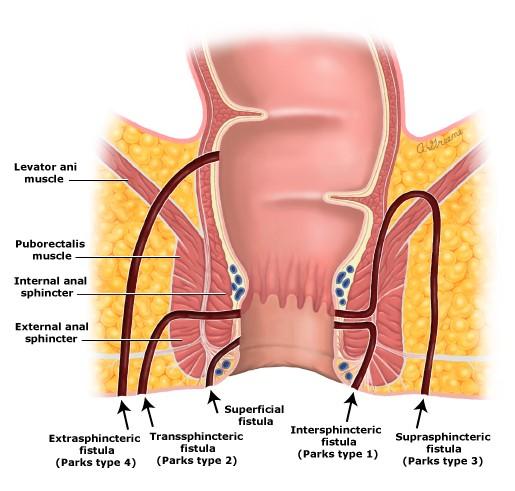Introduction:
Welcome to our comprehensive guide on fistula in ano, a condition characterized by an abnormal tunnel-like tract that forms between the anal canal and the skin near the anus. This condition can cause discomfort, pain, and complications if left untreated. In this article, we will explore the causes, symptoms, diagnosis, and treatment options for fistula in ano to help you better understand and manage this condition.
What is Fistula in Ano?
The fistula in ano, commonly referred to as an anal fistula, is an abnormal connection or tunnel that forms between the anal canal (the last portion of the large intestine) and the skin around the anus. It typically develops as a result of an infection or inflammation in the anal glands, which are small glands located near the anus that secrete fluid to lubricate the anal canal during bowel movements.

Causes of Fistula in Ano:
Fistula in ano can occur due to various underlying conditions or factors, including:
- Anal Abscess: An anal abscess is a collection of pus that forms near the anus as a result of infection in the anal glands or surrounding tissues. If the abscess bursts or is not properly drained, it can lead to the formation of a fistula.
- Inflammatory Bowel Disease (IBD): Conditions such as Crohn’s disease and ulcerative colitis, which cause inflammation in the digestive tract, can increase the risk of developing fistula in ano.
- Trauma or Injury: Trauma to the anal area, such as from surgery, childbirth, or prolonged sitting, can sometimes lead to the formation of anal fistulas.
- Infection: Certain infections, such as tuberculosis or sexually transmitted infections, may contribute to the development of fistula in ano.
Symptoms of Fistula in Ano:
The symptoms of fistula in ano can vary depending on the location, size, and complexity of the fistula. Common symptoms may include:
- Pain or discomfort around the anus, especially during bowel movements
- Swelling or inflammation near the anus
- Pus or discharge from an opening near the anus
- Recurrent anal abscesses
- Itching or irritation around the anus
- Bleeding, particularly during bowel movements
Diagnosis of Fistula in Ano:
Diagnosing fistula in ano typically involves a combination of medical history evaluation, physical examination, and imaging tests. Your healthcare provider may perform the following:
- Physical Examination: Your doctor will examine the anal area to look for signs of swelling, inflammation, or discharge. They may also gently probe the area to identify the location and extent of the fistula.
- Imaging Tests: Imaging studies such as MRI (magnetic resonance imaging) or endoanal ultrasound may be used to visualize the fistula tract and assess its depth and complexity.
- Fistulography: In some cases, a contrast dye may be injected into the fistula tract to help visualize its course and extent more clearly.
Treatment Options for Fistula in Ano:
The treatment of a fistula in ano depends on various factors, including the location, complexity, and underlying cause of the fistula. Treatment options may include:
- Fistulotomy: This surgical procedure involves cutting open the fistula tract to allow it to heal from the inside out. It is often used for simple, superficial fistulas.
- Seton Placement: A seton is a thin piece of material (such as a suture or rubber band) that is placed through the fistula tract to help keep it open and draining. This may be done before or after surgery to prevent recurrence.
- Fistula Plug: In this procedure, a biocompatible plug made of synthetic material is inserted into the fistula tract to help promote healing.
- Advancement Flap Surgery: This surgical technique involves using nearby healthy tissue to cover and repair the fistula tract.
Conclusion:
Fistula in ano is a complex condition that requires prompt diagnosis and appropriate treatment to prevent complications and improve quality of life. If you are experiencing symptoms suggestive of fistula in ano, it is important to seek medical evaluation and discuss treatment options with your healthcare provider. With proper management, many individuals with fistula in ano can experience relief from symptoms and a better overall prognosis.
